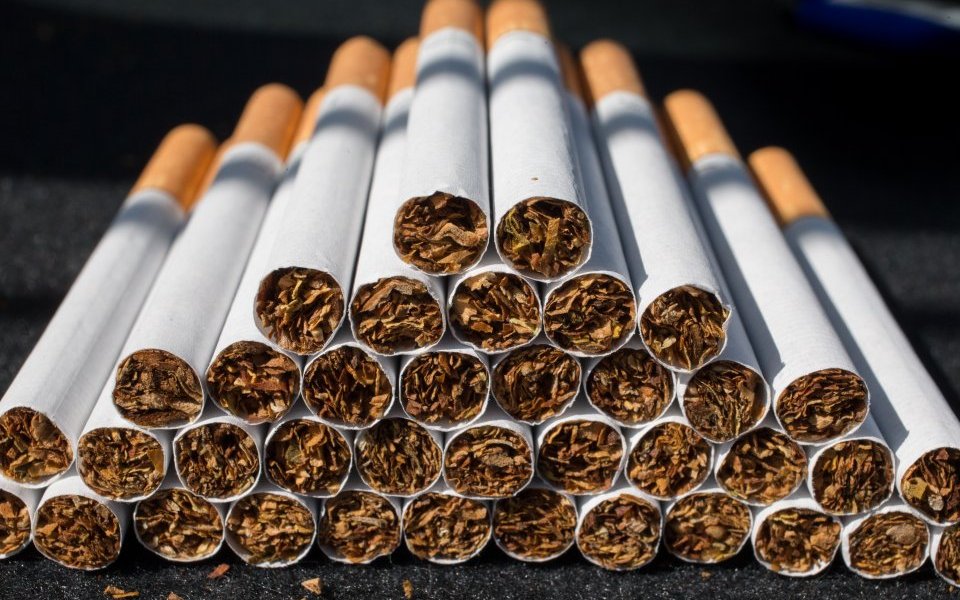The Youth Action on Tobacco Control and Health (YATCH), an NGO, has lauded the Federal Government’s plan to increase tobacco tax.
Mr Seye Omiyefa, the Executive Director of the NGO, made the commendation in an interview with the News Agency of Nigeria (NAN) on Sunday in Lagos.
According to him, the increase will go a long way to save Nigerians from direct and secondhand smoking which have harmful health effects.
NAN reports that the Minister of Health, Prof. Isaac Adewole, on Wednesday said that the government might increase tax on tobacco.
Adewole made the statement while responding to questions from journalists after the Federal Executive Council (FEC) meeting.
According to the minister, the increase will be part of deliberate measures to check abuse and prevent smuggling of tobacco products into the country.
Omiyefa advocated quick implementation of the plan.
“I will like to commend the efforts of the minister of health toward reducing the rate of people dying due to tobacco-related diseases.
“One of the ways to achieve this is by increasing tax on tobacco products.
“It is no longer news that every year Nigeria loses all cadres of manpower and all categories of statesmen and leaders to tobacco-related deaths,’’ he said.
He said that research showed that higher taxes were effective in reducing tobacco use among low income groups and in preventing young people from starting to smoke.
“Tax increase that raises tobacco prices by 10 per cent decreases tobacco consumption by about four per cent in high income countries and by up to eight per cent in most low and middle income countries.
“Furthermore, increasing excise tax on tobacco is considered to be the most cost-effective tobacco control measure.
“The World Health Organisation Report 2010 indicates that a 50 per cent increase in tobacco excise tax will generate a little more than US$ 1.4 billion in additional funds in 22 low income countries.
“If allocated to health, government health spending in these countries can increase by up to 50 per cent,’’ he said.
The director said that most consumers of tobacco products were people who struggled to make ends meet.
“ The first thing they do when they get any income is to buy a stick of cigarette or any other tobacco product just to satisfy their addiction which is as a result of the nicotine content.
“Increasing tax on tobacco products in Nigeria will reduce the rate of poor people buying cigarrete or any other tobacco product in the country.
“Globally, the prices of cigarette are high compared to what we have in Nigeria.
“In Canada, a pack of cigarrete is sold for about $8.2 (N3, 220); in UK, it is sold for $11.53 (N4, 162); in USA, $6.50 (N2, 346), and in Australia, it is sold for $18.63 (N6, 725).
“According to the Australian Government, it will raise tax on tobacco by 12.5 per cent every year from 2017 to 2020,’’ he said
Omiyefa told NAN that it was dissatisfactory that a pack of cigarrete as sold for $2 (N722) in Ghana, while in Nigeria, a pack of cigarrete was sold for about $0.71 (N255).
“Since a pack of cigarrete in Nigeria seems to be the cheapest in the world, there is the need to decrease consumption rate.
“This will also decrease the number of people dying from tobacco-related diseases, “ he said.
NAN reports that smoking, direct or secondhand, have been known to cause cancer and some other diseases.
It has been linked to cancers of the lung, larynx (voice box), pharynx (throat), nasal sinuses, brain, bladder, stomach, rectum, stomach and even breast.
It affects the heart and blood vessels, increasing the risk of heart attack and stroke.
Some studies have also linked it to mental and emotional changes and disorders.




 Premier League
Premier League